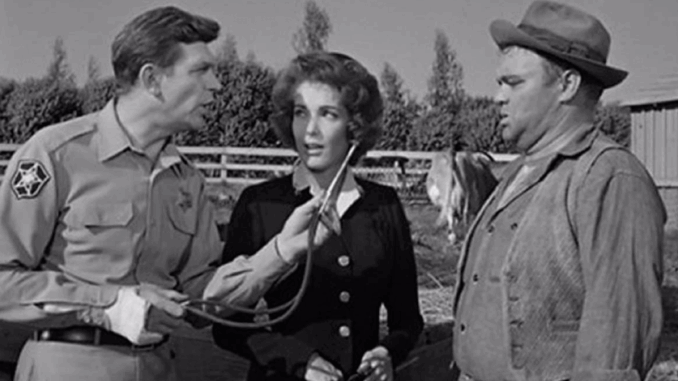
Sometimes, amidst the flood of old entertainment, there are works that unexpectedly speak with weight to reality. A 1962 episode of The Andy Griffith Show called “The County Nurse” is a prime example. This episode, which seems to be a simple, light-hearted story about rural life in the American South, subtly depicts the age-old problem of vaccination reluctance and fear. The story begins when Sheriff Andy Taylor is assigned to assist the county nurse in convincing a farmer named Rafe Hollister to get a tetanus shot. Rafe, a typical conservative country person, distrusts modern medicine and flatly refuses. Andy tries everything, but fails. Even Barney – his enthusiastic colleague – cannot sway Rafe, and in fact makes things more complicated. Even the county nurse, who is supposed to represent science and reason, fails.
However, what makes the episode profound is not that failure, but how Andy approaches the issue. Instead of continuing to use reason to argue with Rafe, Andy turns to a more emotional and humane approach. He tries to create empathy and appeal to Rafe’s self-esteem, so that he himself sees that vaccination is not only about protecting himself, but also about his responsibility to the community. And in the end, Rafe changes his mind.
The episode is short, but it contains many layers of meaning. It clearly shows the complexity of human psychology when faced with change and what they do not understand. The episode also raises questions about trust – trust in science, in the community, and in those who represent the law and medicine. In particular, “The County Nurse” shows that kindness, patience and empathy are sometimes more effective than sharp arguments or rigid orders.
Without being overly dramatic, nor trying to convey a message in an obvious way, this episode still leaves a lasting impression. It cleverly reflects what modern society is facing – the confusion, skepticism and struggle between tradition and progress. With its simple narrative, everyday characters and humane solutions, “The County Nurse” becomes a small mirror, reflecting on the larger problems that we are still struggling to find solutions to.
